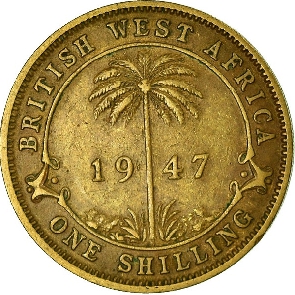GhanaWeb Feature
The introduction of taxes by any government has somehow been met with discontent by citizens or residents of that state.
Although taxes are paid to ensure a nation generates domestic revenue for socio-economic development, payment of taxes have become unpopular, especially in the Ghanaian context.
Many still question why they pay taxes when they barely see little to no development in their social, economic and living standards.
In GhanaWeb’s history class, we take you back to the Gold Coast era in 1852 where a poll tax was instituted by the British colonial government, intended to pay for provision of social amenities for people in the Southern states of Gold Coast.
The measure, which was instituted on April 1, 1852, was passed by British colonial authorities and known as the Gold Coast Poll Tax Ordinance.
It was signed by Stephen John Hill on behalf of the British Royal Crown and quickly became unpopular after nine years, eventually abolished by the colonial authorities in 1861.
The tax measure required that every adult citizen in the Gold Coast was to pay a tax of one shilling annually, which amounts to six pesewas today. The tax was to be applied to the provision of amenities such as schools, hospitals, water etc.
The Gold Coast Poll Tax Ordinance, which did not exist for too long, was abolished on rather a familiar reason. It was reported that funds collected as the tax were being diverted for purposes other than were slated for in the Ordinance.
There was widespread condemnation over these and other issues relating to the tax of which the Ordinance had to be withdrawn and abolished in 1861.

Other reasons why the Gold Coast Poll Tax failed
While the diversion of funds, public opposition among others were some of the causes why the Gold Coast Poll Tax failed, there still remains an array of reasons that engulfed the controversial tax.
According to eaumf.org, part of funds collected as tax were being diverted to pay salaries for the Civil Servants at the time – a move that was vehemently opposed by the people.
Shortly after the tax measure was instituted, it was discovered that part of the funds was being embezzled by the tax collectors. This created some discontent among the people and largely contributed to its withdrawal.
For any tax revenue measure, monitoring during and after collection is key but this was not the case in 1852 as there was absence of an adequate monitoring system. It was reported that tax collectors often pocketed portions of the money which created more problems.
With a one-shilling per year requirement at the time, most residents in the southern part of the Gold Coast could not honor the obligations as many of them were poor and vulnerable.
Before a tax measure is introduced, consultation is often key to its acceptance but this was not the case for when the Gold Coast Tax Poll Ordinance was instituted. Traditional authorities who were leaders of their various sects became angry over their lack of involvement.
For this reason, the traditional rulers, at a point stopped paying the tax all together.
Finally, the Gold Coast Tax Poll Ordinance suffered another setback after chiefs of the coastal states felt the British were not providing them with enough protection against the risk of an Ashanti invasion.
Some of the chiefs of the coastal states, in view of this, ordered their subjects not to fulfill their tax obligation to the colonial authorities.
Watch the latest episode of BizTech below
Author: Mawuli Ahorlumegah
Business News of Sunday, 2 April 2023
Source: www.ghanaweb.com













